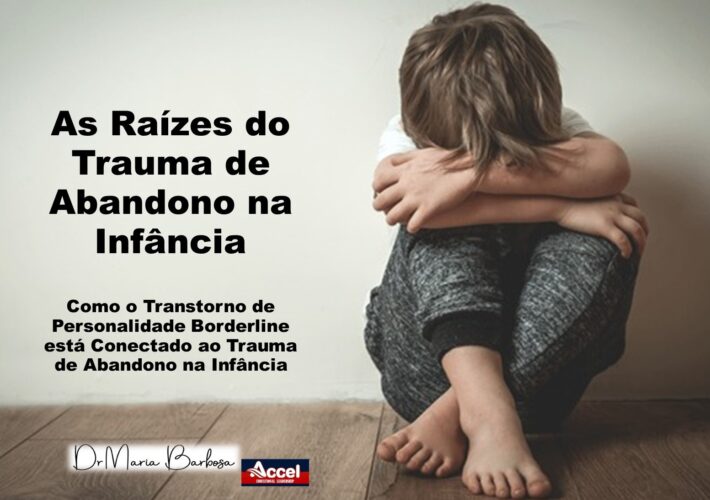Part 3 Empowering Women – Success Away From Home
Financial Struggles, A Common Difficulty
The forced financial struggles encountered by women navigating life away from home contribute to a cycle of challenges. These struggles can lead to compromised decision-making and, in some cases, the acceptance of situations that are less than favorable. It is imperative to recognize the prevalence of these issues, especially among those seeking refuge in foreign lands.
Empowering Solutions: Education as the Key: Amidst the myriad challenges faced by women away from their families, the power of education emerges as a beacon of hope. Whether through self-education or enrolling in technical courses, acquiring knowledge becomes the catalyst for freedom and the gateway to opportunities for a successful and improved life. Investing in education empowers women to break free from the shackles of manipulation and financial struggles, paving the way for a brighter future.
Self-Education: A Path to Liberation: Taking the initiative to educate oneself is a pivotal step toward liberation. The vast array of online resources, courses, and educational platforms provides women with the tools they need to enhance their skills and knowledge. From learning new languages to acquiring technical expertise, self-education opens doors to a world of possibilities.
Technical Courses: Bridging the Gap: Enrolling in technical courses offers a structured and guided approach to skill development. These courses not only provide valuable insights into specific industries but also equip women with the skills demanded in today’s competitive job market. From coding to digital marketing and especially for women seeking skill development in fields like nursing and other sectors, technical courses bridge the gap between aspiration and achievement, fostering personal and professional growth.
A Call to Action: Breaking Free, Rising Strong: In conclusion, the journey of women away from their families is riddled with challenges, emotional struggles, and manipulative traps. However, the key lies in recognizing these obstacles and taking proactive steps towards empowerment. Education, whether through self-learning or technical courses, serves as the ultimate tool for breaking free from the shackles of uncertainty and financial struggles. It is time for women to embrace their inner strength by overcome their emotional struggles.
Financial difficulties
Financial difficulties are a common challenge faced by many women. In contemporary society, several women grapple with financial issues influenced by various factors such as wage disparities, family responsibilities, lack of access to equal opportunities, and other obstacles.
It is true that financial difficulties are a common challenge for many women, especially those who are immigrants. This reality is shaped by a series of factors that can make the financial situation even more complex for women seeking to build a life in a new country.
- Language and Cultural Barriers: Immigrant women often face language and cultural barriers, limiting their employment opportunities and access to essential information about financial services. Lack of understanding of the local financial system can lead to poor decisions and economic difficulties.
- Credential Recognition: Some immigrant women may encounter challenges in having their credentials and qualifications recognized in the new country. This can negatively impact their ability to find jobs that match their education and experience, directly affecting their financial stability.
- Job Insecurity: Immigrant women are often more likely to hold precarious or temporary jobs, leading to financial insecurity. Job instability can make long-term financial planning and creating a safety net more challenging.
- Professional Recognition Challenges: Some professions practiced by women in their home countries may not be easily recognized in the new environment, requiring them to seek other means of livelihood that may not align with their skills and experience.
- Expanded Family Responsibilities: Many immigrant women take on expanded family responsibilities, dealing with their families’ adaptation to the new environment. This may require additional financial resources, adding pressure to their economic situation.
Avoid overspending
If you’re open to it, I’d like to share some tips with you on how to avoid overspending on unnecessary items. Like overspending at excessive possessions, such as an extensive collection of shoes or handbags, is one example.
By embracing essential expenses and focusing on needs rather than desires, you not only strengthen your financial position but also cultivate a mindful and intentional approach to money management. This shift in mindset promotes long-term financial well-being, enabling you to allocate resources wisely, achieve financial goals, and experience a greater sense of financial empowerment.
Distinguishing Between Needs and Wants:
- Essential Needs: Identify fundamental needs for daily life, such as housing, food, utilities, and healthcare.
- Non-Essential Wants: Differentiate between genuine needs and discretionary wants that contribute to discretionary spending.
To minimize impulsive purchases, introduce a “cooling-off” period before making non-essential purchases. This waiting time provides an opportunity to reassess the necessity and consequences of the expense, ensuring a more deliberate and thoughtful decision-making process.
Conscious Spending Habits:
- Mindful Choices: Make conscious choices when it comes to spending, considering the necessity and long-term impact of each expense.
- Avoid Impulse Purchases: Resist the temptation of impulse purchases that contribute to unnecessary spending.
About the author, Dr. Maria Barbosa, originally from Portugal, immigrated to the United States at 1984, with a work visa. She lived in New Jersey for 16 years and then moved to Florida, where she has happily called home since the year 2000. Like many other women who have immigrated, I too faced various difficulties in the financial realm. However, I consider my experience a testimony that success is attainable when knowledge is acquired and diligent efforts are made to achieve financial stability.
Empowering Yourself Against Financial Struggles
A Strategic Guide: Financial struggles can be formidable challenges, particularly for women navigating life away from home. Recognizing the prevalence of these issues is the first step towards empowerment. Here’s a strategic guide on how to empower yourself against financial struggles:
Financial Education-Educate Yourself: Take the initiative to understand basic financial principles, budgeting, and investment strategies.
Courses and Workshops: Enroll in financial literacy courses or attend workshops to enhance your knowledge. 1. Set Financial Goals-Define Objectives, 2. Build a Support Network. 3. Debt Management
Here is a formula that can assist you in achieving freedom from debt at an accelerated pace.
The amount of money a person can save from their monthly payroll depends on various factors, including individual financial goals, expenses, and lifestyle. However, a commonly recommended guideline is the 50/30/20 rule. According to this rule:
50% for Needs: Allocate approximately 50% of your monthly income to essential needs such as rent or mortgage, utilities, groceries, and other necessary expenses.
30% for Wants: Dedicate around 30% to discretionary spending, including non-essential items or experiences that enhance your lifestyle and well-being.
20% for Savings: Aim to save at least 20% of your monthly income. This portion can go towards building an emergency fund, contributing to retirement accounts, or achieving specific financial goals.
Having absolute conviction and faith that God will provide the finances one desires involves a deep trust in God’s plan and timing. It’s about aligning one’s desires with God’s will and seeking His guidance in financial matters. Philippians 4:19 (NIV) is another verse that expresses this trust: “And my God will meet all your needs according to the riches of his glory in Christ Jesus.”
The Bible offers several principles and guidelines that can be applied to managing finances, saving money, and spending wisely. Here are some key principles:
Stewardship: The Bible teaches that everything belongs to God, and we are stewards of what He has entrusted to us. This includes our money. The parable of the talents in Matthew 25:14-30 emphasizes the responsibility of wisely using and growing what we have been given.
Budgeting: While the Bible may not explicitly mention budgeting, it emphasizes the importance of planning and being prudent with resources. Proverbs 21:5 states, “The plans of the diligent lead surely to abundance, but everyone who is hasty comes only to poverty.” Creating a budget is a practical way to plan and allocate resources wisely.
Avoiding Debt: The Bible discourages the accumulation of debt. Proverbs 22:7 warns, “The rich rules over the poor, and the borrower is the slave of the lender.” Living within one’s means and avoiding unnecessary debt is consistent with biblical principles.
Contentment: Cultivating contentment is a key biblical principle. Hebrews 13:5 advises, “Keep your life free from love of money, and be content with what you have, for he has said, ‘I will never leave you nor forsake you.'” Learning to be content can help resist the urge to overspend or pursue wealth at the expense of more important values.
Generosity: The Bible encourages generosity and giving to those in need. Proverbs 19:17 states, “Whoever is generous to the poor lends to the Lord, and he will repay him for his deed.” Allocating a portion of income for charitable purposes reflects biblical values.
Planning for the Future: Proverbs 21:20 says, “Precious treasure and oil are in a wise man’s dwelling, but a foolish man devours it.” This verse emphasizes the importance of planning for the future and saving for unforeseen circumstances.
Hard Work: The Bible promotes the value of hard work and diligence. Proverbs 13:11 states, “Wealth gained hastily will dwindle, but whoever gathers little by little will increase it.” The idea is to work diligently and accumulate wealth gradually rather than seeking quick, unsustainable gains.
It’s essential to approach financial decisions with prayer, seeking guidance and wisdom from God.
To arrange a consultation time, please send your details via WhatsApp message on +1 386-206-6325. Thanks!
Certified as School Board of Education / PHD-Doctor of Philosophy in Cristian Clinical Counseling. ACCEL-Holistic Life Coach / Founder-Director of ACCEL Educational Leadership. Pastor Christian Minister Clergy / Bachelor of Theology in Pastoral leadership and Certified EETAD Theology
Discover more from Dr Maria Barbosa
Subscribe to get the latest posts sent to your email.





